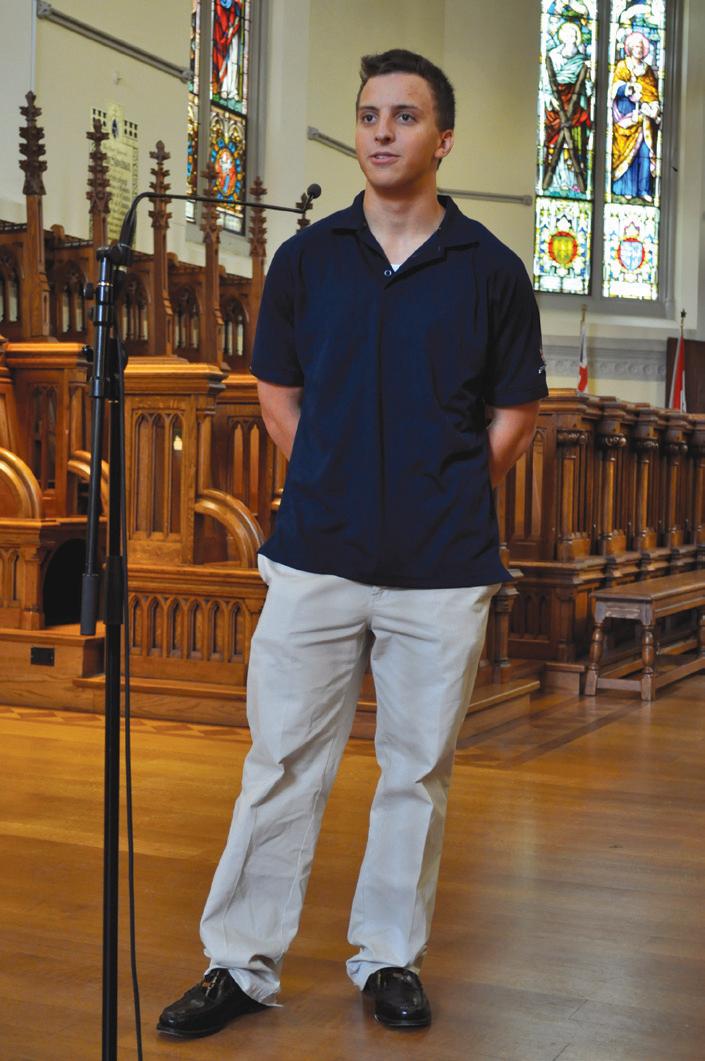
8 minute read
The Power of Speaking Up BY WARREN LANG
FEATURE
THE POWER OF SPEAKING UP
Advertisement
Alumni share their struggles to help others through tough times.
BY WARREN lANG
TODAY, BEN MCLAUGHLIN ’12 TALkS OPENLY ABOUT WHO HE IS AND WHAT IT WAS LIkE TO COME OUT AS GAY WHILE AT UNIVERSITY. BUT THE RECENT LAW/MBA GRADUATE FROM OSGOODE HALL AND THE SCHULICH SCHOOL OF BUSINESS REMEMBERS WHEN SPEAkING UP WAS FURTHEST FROM HIS MIND.
Ben wasn't open about who he was in high school, and instead went on the attack against anyone he viewed as a threat.


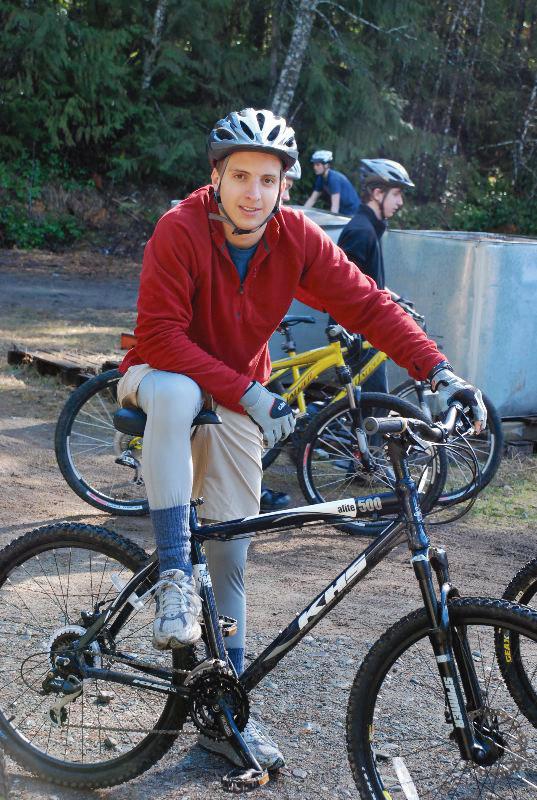
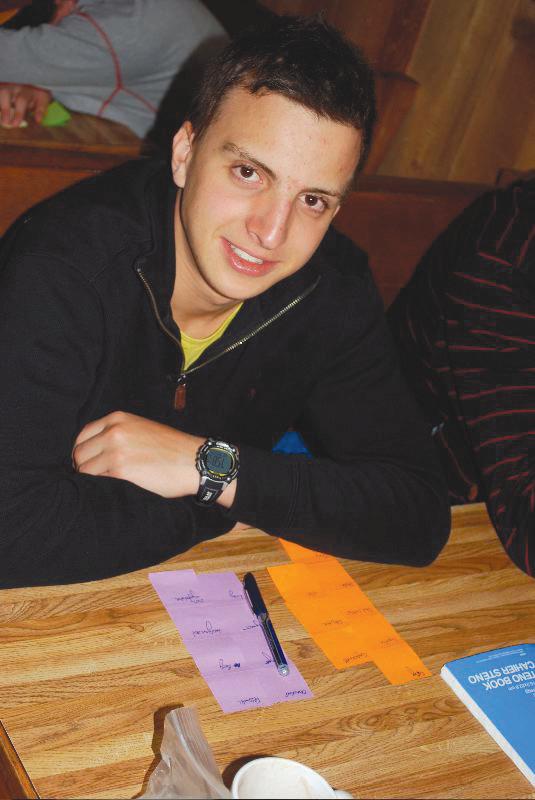
“In high school, I wasn’t open about who I was. Instead, I insulated myself and went on the attack against anyone I viewed as a threat. Trying to protect myself against being seen as gay just made my experience worse. If you’re not authentic, it’s hard to build genuine friendships.
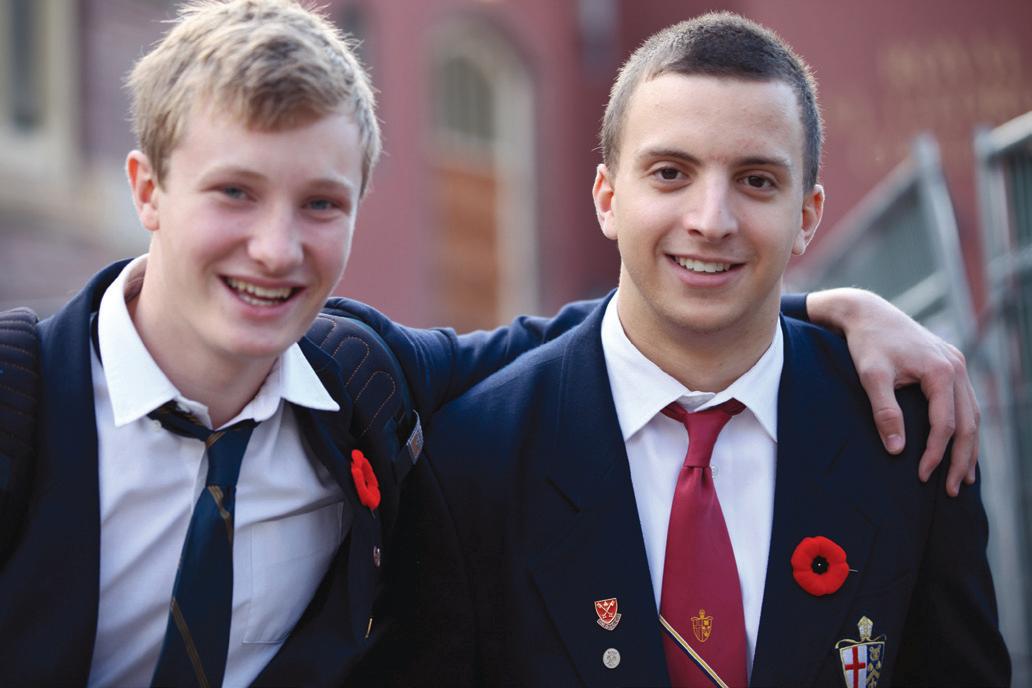
It takes courage to be honest about who you are, but my experience has shown me that you’ll be respected for it.”
Ben recently visited RSGC to share his story at Evensong. He wanted current students to understand that while social dynamics in high school are complicated, speaking up and being yourself build confidence. Being yourself can also save you from the trap of forming relationships based on who you aren’t rather than who you are. There are psychological and social costs to muzzling yourself.
“As a student, I heard a lot of stuff in locker rooms,” he
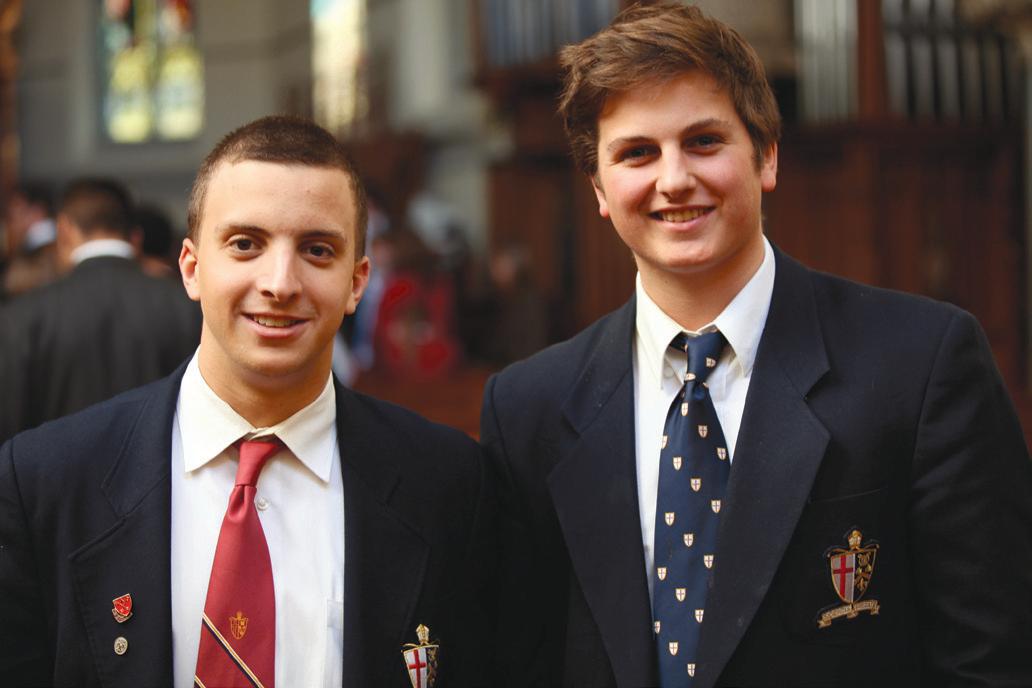
recalled. “It had an impact on me. Language is powerful – our words can hurt or help. I didn’t stand up for myself or speak up. If I had, I think the language around me would have changed in response. That’s why I talked to the boys about the impact our voices have on ourselves and on others.”
Alex was kicked out of McGill, but is now studying politics and governance at Ryerson University, where he also hosts a radio show.

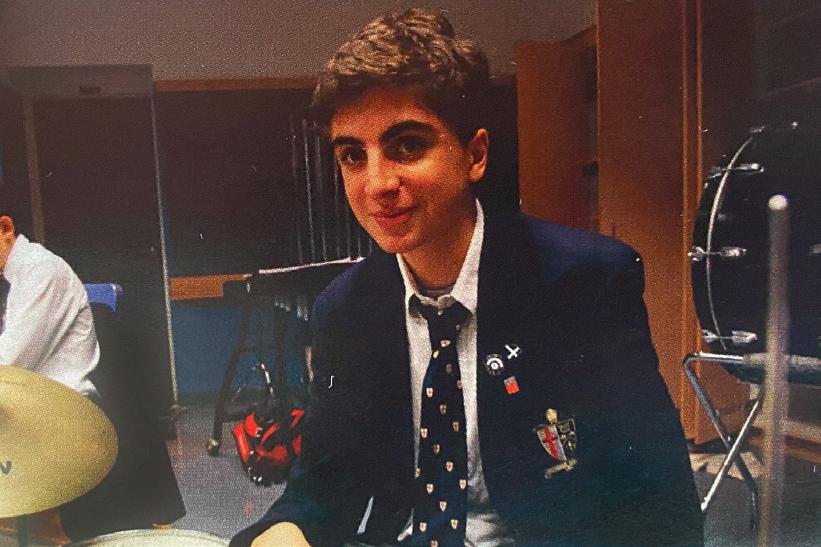
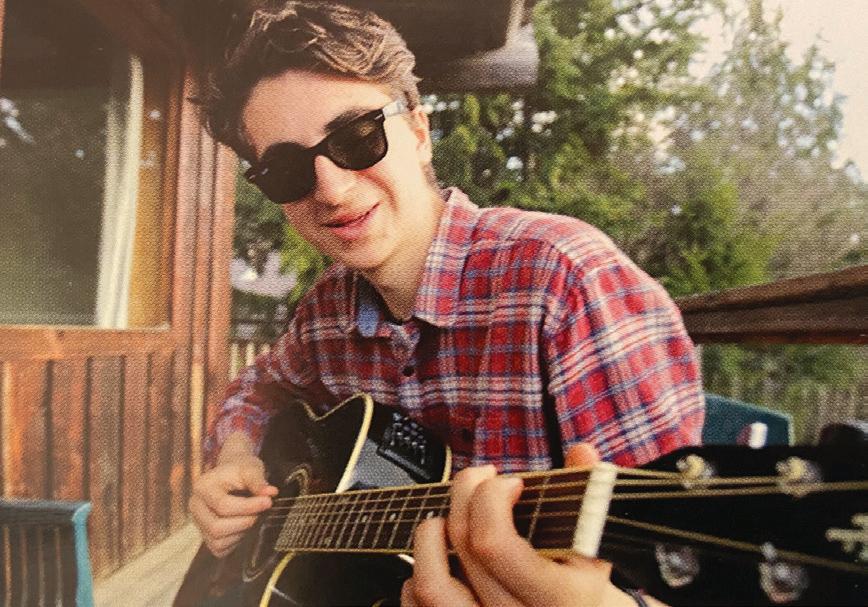
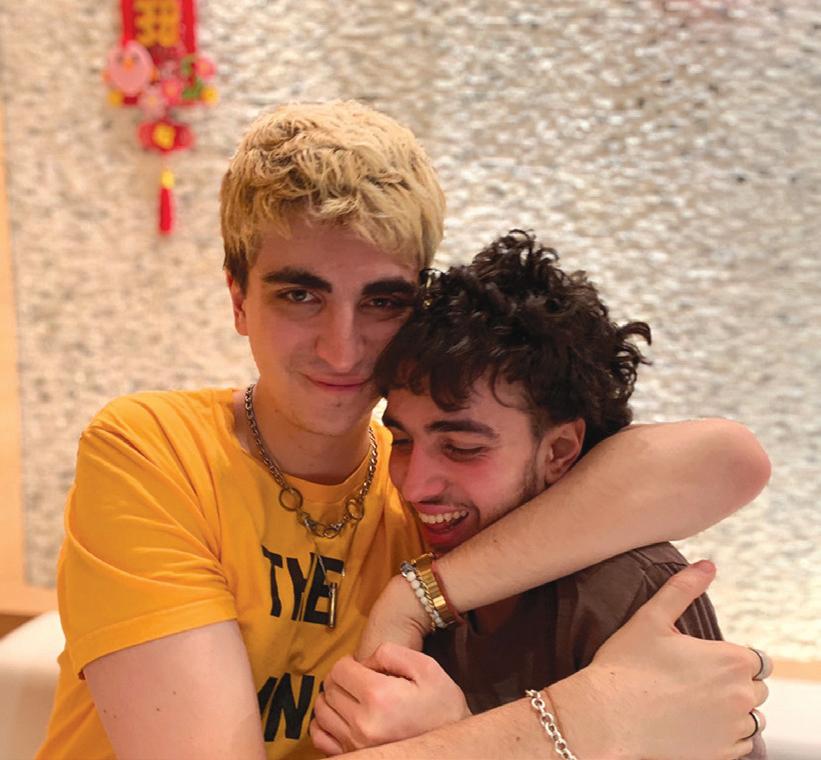
ALEx SPEARS ’15 kNOWS WHAT IT’S LIkE TO STAY qUIET WHEN SPEAkING UP WOULD HAVE HELPED EASE HIS STRUGGLES.
With a lifelong history of anxiety marked by bouts of depression, Alex turned to alcohol in high school as a form of escape. In the end, substance use masked his problem while it grew stronger beneath the surface.
In his first year at McGill, Alex only made it through a week of classes before his anxiety blew up in his face. He then spent the following months drinking in his room or out at bars. By the end of the first semester, he had a 0.3 GPA.
“I was on my own and I was terrified,” he said. “I was also in denial about my real problem. I knew I was drinking too much and focused on that. But the issue was my mental health. That was driving the substance use. I was looking at the wrong thing.”
Eventually, Alex was kicked out of McGill for his poor grades.
“There’s pressure on private school guys to have the appearance that you’re killing it, that you’re a big success. I was mortified by my failure, and that only made things worse.”
Life changed when Alex asked his mom to help him quit drinking and enter a program. He eventually got to work on his underlying mental health issues and now has a multifaceted approach to maintaining wellness that includes therapy, fitness and medication.
Now studying politics and governance at Ryerson University, where he also hosts a radio show, Alex credits his turnaround to speaking up and engaging his family and friends in his recovery. He is open about his struggles and shares his story whenever he thinks it could help others.
Alex has seen this approach bear fruit. He once heard that an RSGC classmate
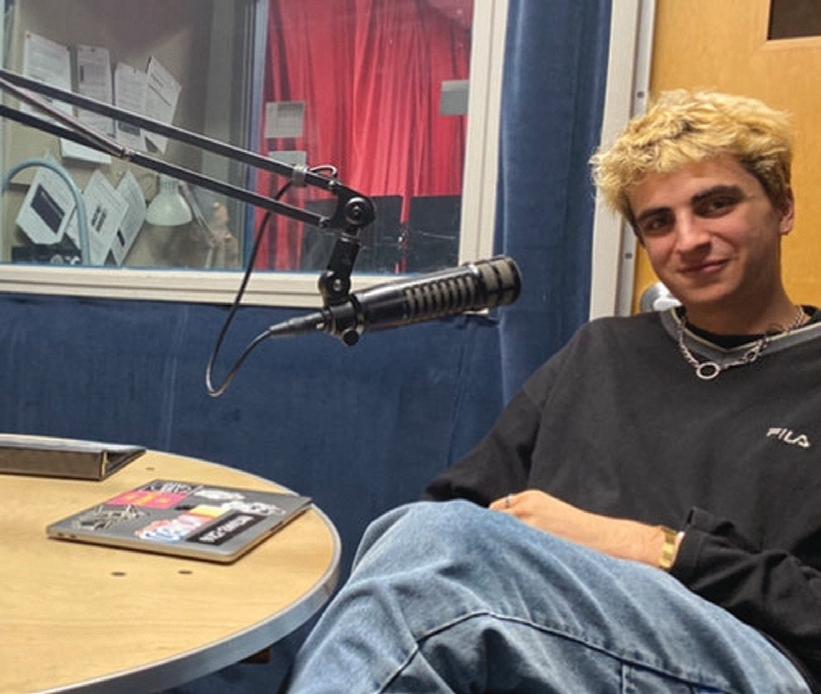
was having a tough time with addiction and homelessness. When Alex came by to talk to him, the friend was too humiliated to open the door.
“I just said to him, ‘When you’re ready, I’m here for you.’ He called me from the hospital a month later and said, ‘I’m ready.’ He moved into a sober house and has since moved back in with his family and gone back to school. It’s so important to be able to say, ‘I’m not doing well. I need help.’ It’s also important to be open with your own story. I share this part of myself as often as I can. I know firsthand that it makes a difference.”
Aaron Thompson ’95, along with Alex Smith ’94, established the Timothy McGee ’95 Memorial Fund.
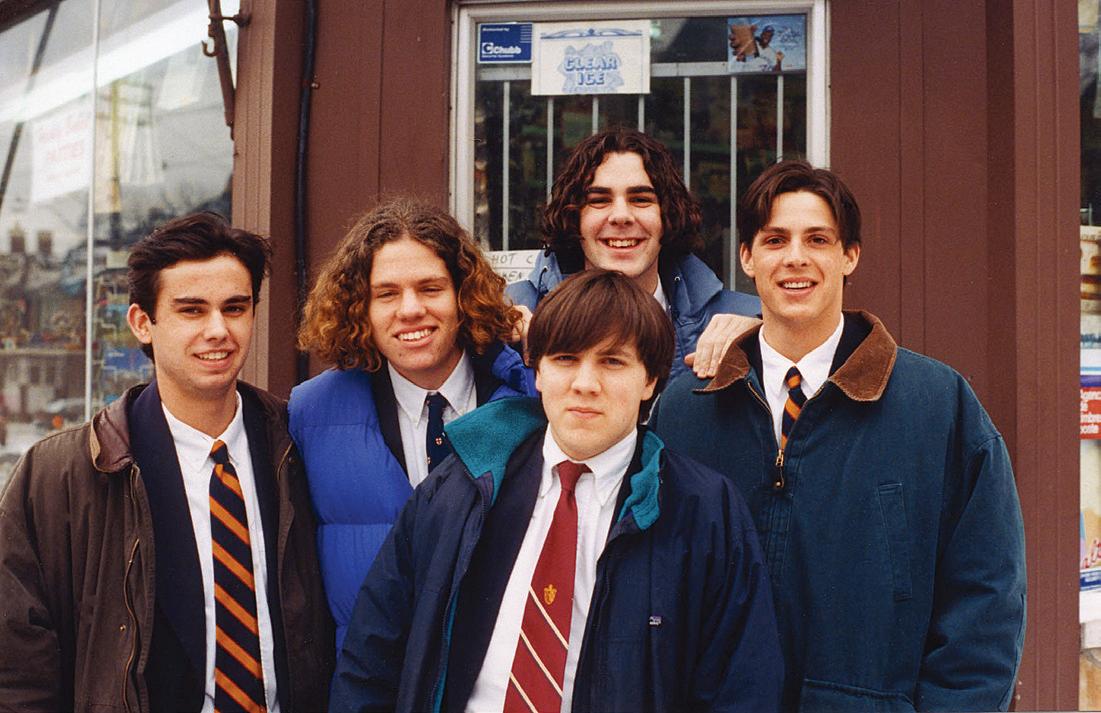
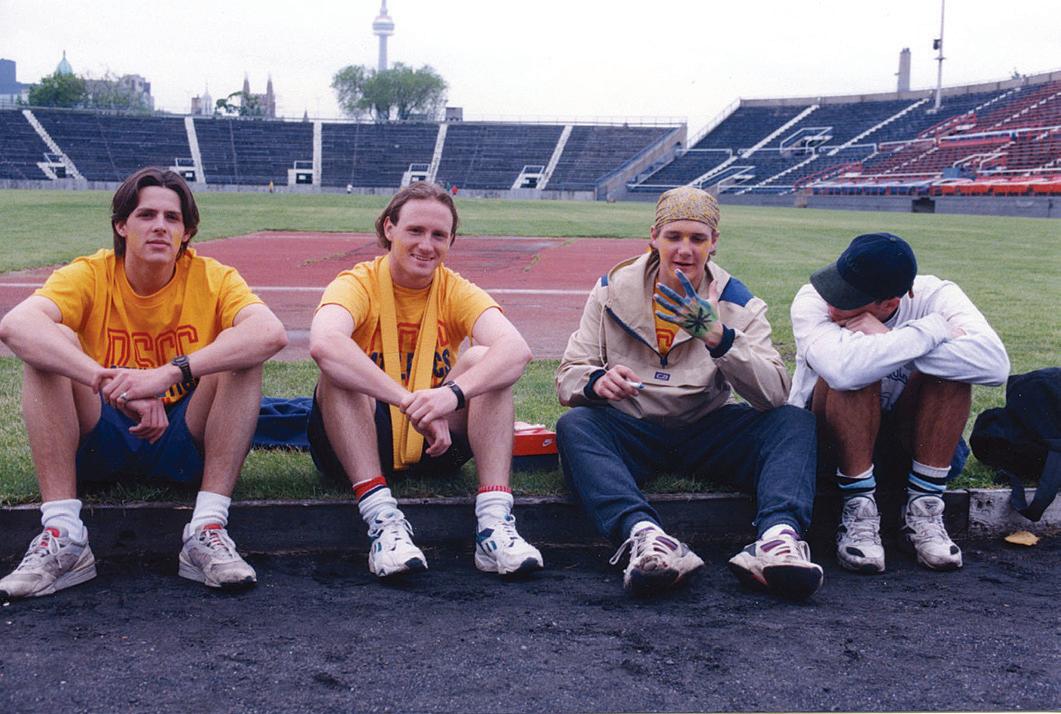
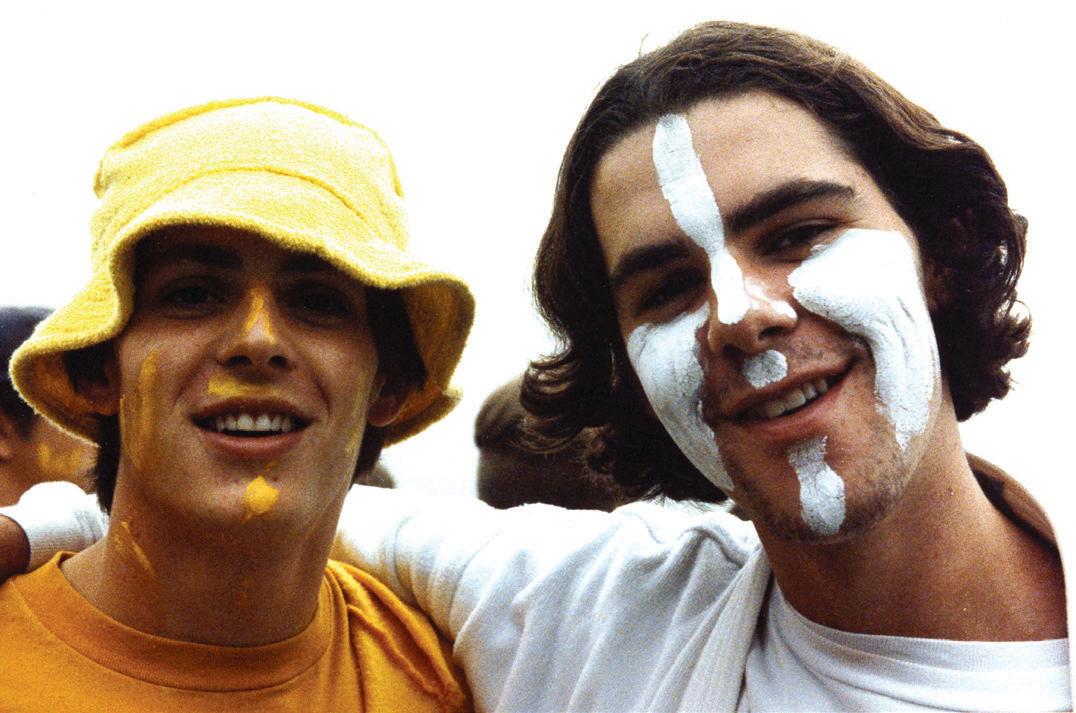
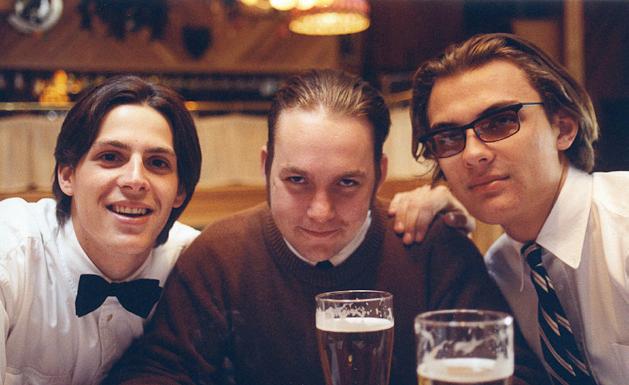
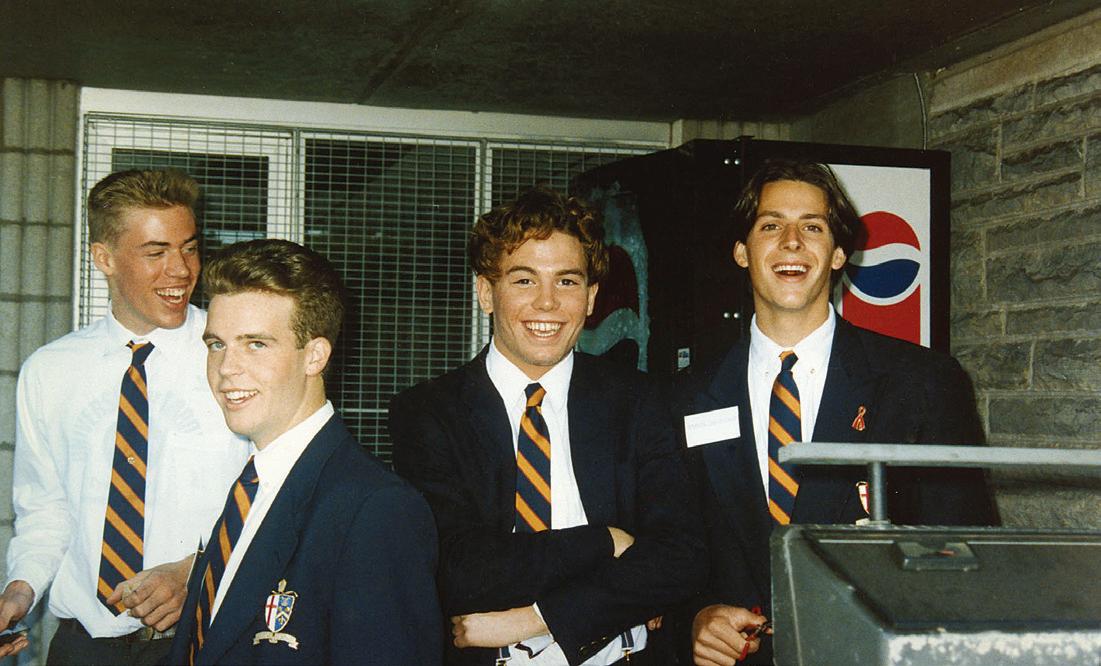
MAkING A DIFFERENCE IN PEOPLE’S LIVES IS WHAT THE TIMOTHY MAGEE ’95 MEMORIAL FUND IS ALL ABOUT.
Established by Aaron Thompson ’95 and Alex Smith ’94, the fund supports mental health initiatives at the College. In addition, a bench near the Chapel will soon bear a plaque in Tim’s honour and serve as a place to go for reflection and quiet conversation with a friend.
“Tim was an amazing person,” said Aaron, now an Assistant Professor at the Faculty of Medicine at University of Toronto and Chief Medical Officer of the WSIB. “He was funny, talkative, confident and loyal. He was also interested in psychology and human behaviour. At the same time, he wasn’t always comfortable opening up when feeling lonely or isolated. It’s more common today to recognize our vulnerabilities and talk about them. Back then, it was rare.”
Tim struggled with periods of depression while at RSGC and into his adult
Alex Smith ’94 is glad the Classes of ’94 and ’95 have been so supportive of the Memorial Fund
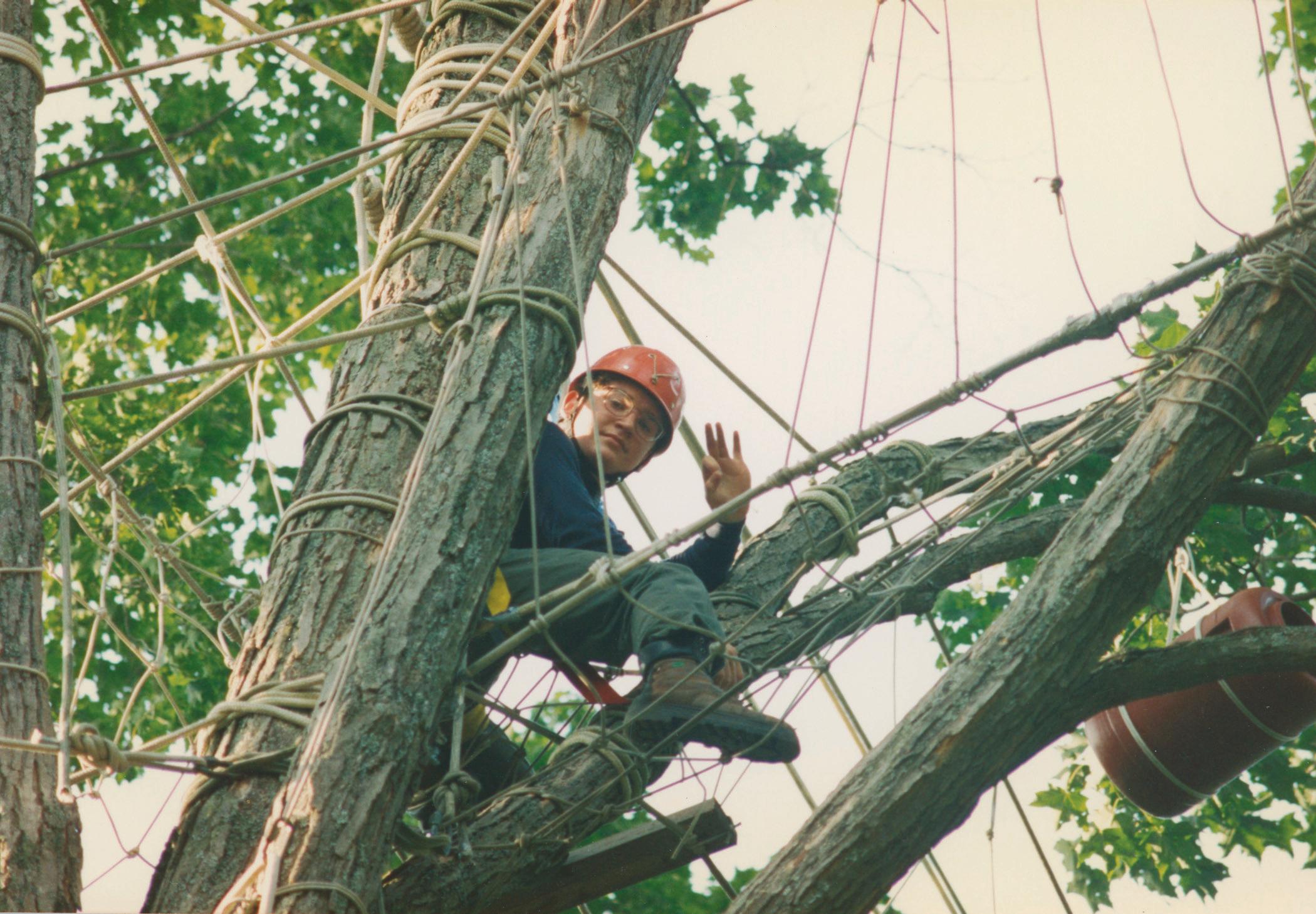


life, which led him to self-medicate with alcohol and drugs. Sadly, he died of an accidental overdose in December 2015.
“Tim tried to manage everything on his own,” said his brother Mark ’93. “Too often, young men think, ‘I’ve got this.’ Instead, our message needs to be, ‘Let’s talk about this.’ We want students to reach out when they’re struggling. Th e Memorial Fund helps to turn a sad event into a positive force for good.”
Because of his work, Aaron is well aware of the sheer prevalence of mental health challenges among youth. He applauds everything RSGC is doing to support the boys.
“Adolescence is a particularly vulnerable time,” he said. “For developmental and social reasons, a large proportion of mental illnesses arise in the teenage years. So, this is the time to provide resources and promote openness, de-stigmatization and constructive coping strategies. Th e Classes of ’94 and ’95 were overwhelmingly supportive of the Memorial Fund. So many people loved Tim and want to keep his memory alive, and keep this issue in the forefront of people’s minds.”
Andrew von Teichman ’96’s D’Ont Poke the Bear wine and craft cider brand is attached to bullying prevention.
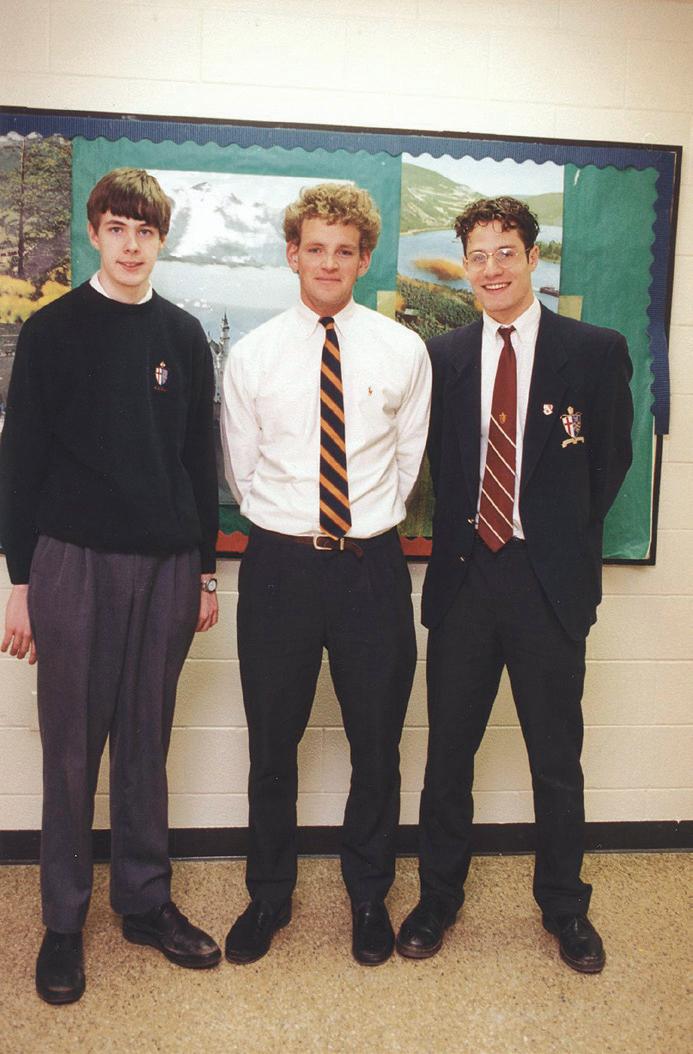
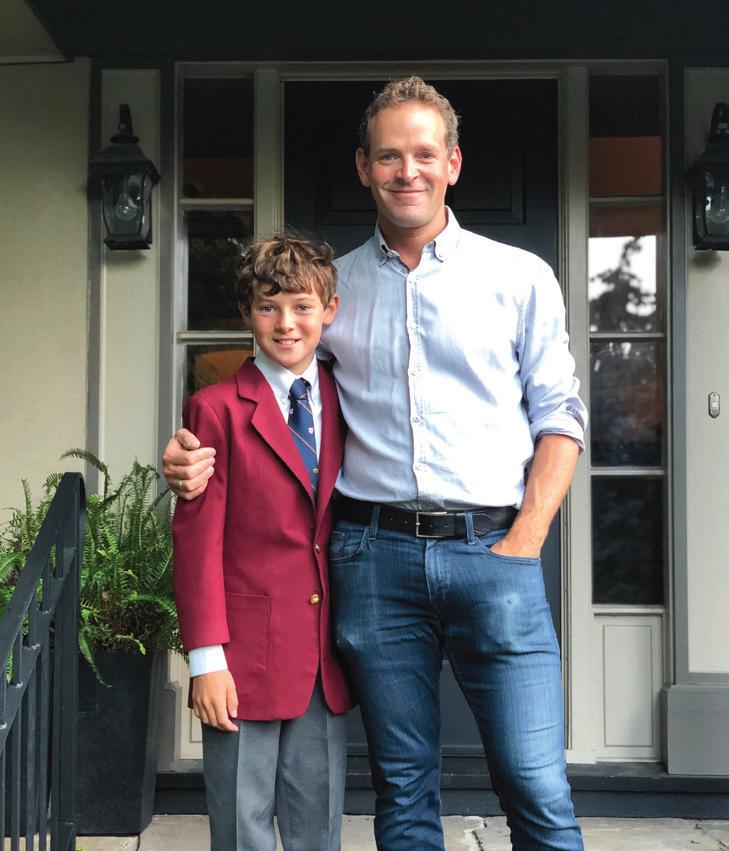
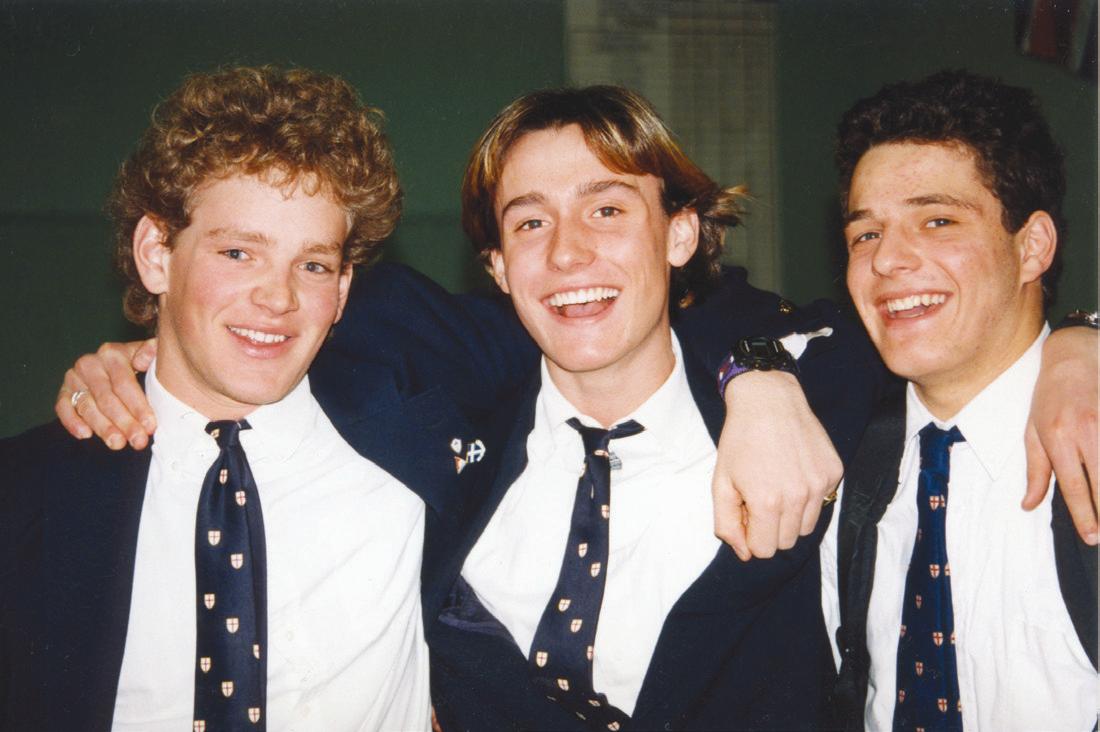
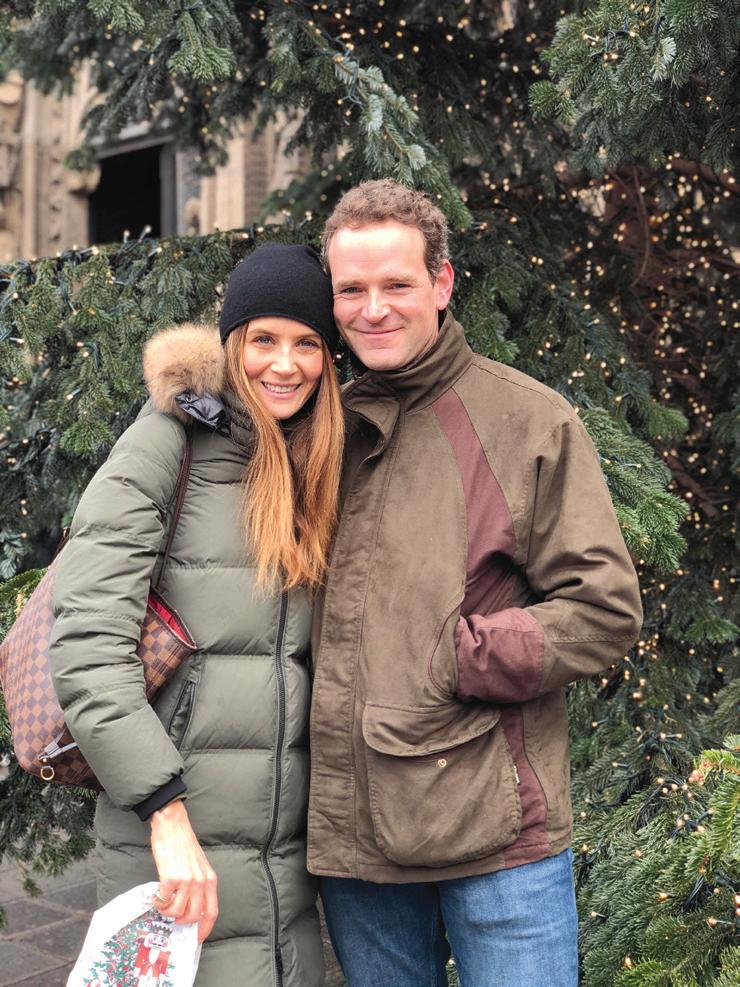
ANDREW VON TEICHMAN ’96 IS ALSO COMMITTED TO HELPING OTHERS BY SHARING HIS STRUGGLES AND RAISING FUNDS TO SUPPORT YOUNG PEOPLE.
Founder of Von Terra, which represents local and imported producers of premium wines, beers and spirits, Andrew grew up working summers at his family-owned Pelee Island Winery. Recently, he partnered with Allan Jackson of Jackson-Triggs to create D’Ont Poke the Bear wines and craft cider, which feature a distinctive label of a bear wearing an eye patch.
“Allan and I discovered that we had both been bullied at school,” explained Andrew. “In my case, it started because I had to wear an eye patch. Once Allan and I started talking about it, we decided to attach our brand to bullying prevention. When I pitched the idea to an LCBO buyer, she burst into tears. It turned out she was bullied as a child and was also worried about her own daughter. That’s when we really committed to rallying around the cause.”
The more Andrew shared his story with others, the more stories he heard back. He was shocked by the number of people who opened up about their experiences, whether as a child in school or an adult in the workplace. As a result, proceeds from every D’Ont Poke the Bear sale are donated to Friends First, an anti-bullying organization founded by Andrew’s wife, Natalie.
Andrew knows how much courage it takes to speak up, for someone who has experienced or witnessed bullying. But the more open the conversation, the better for everyone.
“Natalie and I have four boys,” he said. “We work hard to raise them with the message that kindness and empathy come first. It’s not just what we say, it’s what we do. As parents, we talk kindly about others. We take an empathetic position. Our children watch us and hear us. And we talk to them about how kindness and empathy take a bully’s power away.”
Andrew hopes that his children – and all of us – will stand up and say something in the face of bullying behaviour.
“This whole journey began because Allan and I shared our experiences. It’s amazing what our voices can do.”










